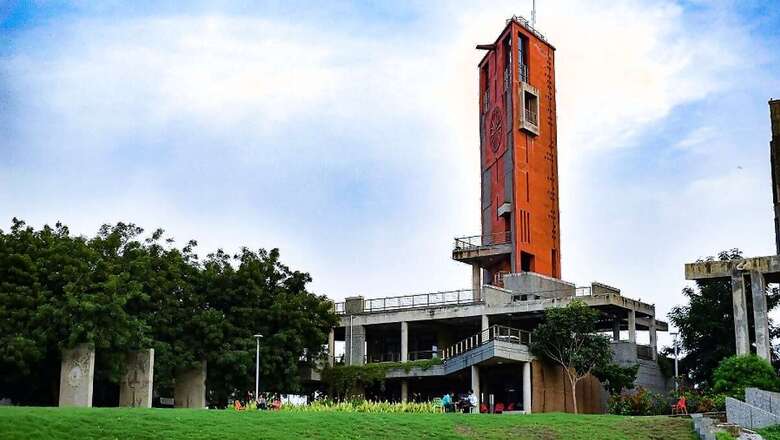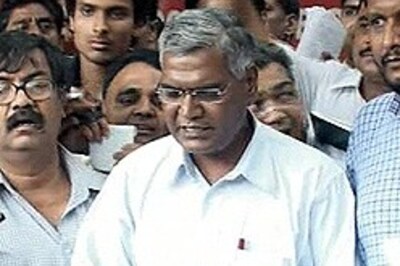Keeping Up With the Times: Prompted by Demand, IITs Revise UG Syllabus to Start Full-Time AI Courses

views
Prompted by the growing number of job offers and application of Artificial Intelligence (AI) across sectors, IITs are revising undergraduate curriculum to launch full-time degree courses in the discipline along with data science and other emerging technologies.
Indian Institute of Technology (IIT)-Gandhinagar, one of the new-age IITs, is the latest to launch a BTech in AI from the new academic session 2023-24. While IIT-Patna launched a full-time degree course in AI and data science this January, IIT-Guwahati launched a BTech in Data Science and AI (DSAI). IIT-Hyderabad was the first tech institute across the country and among very few globally to have launched a BTech in AI in 2019.
While many IITs such as Madras, Delhi and Bombay do offer offline courses for working professionals in AI and data analytics as well as dual degree courses (five-years programme) for on-campus students in which they get to study subjects such as robotics and machine learning, among others in the post-graduate year, those offering full-time undergraduate courses in the discipline are still a handful.
On the expanding focus on AI, Prof Rajat Moona, director, IIT-Gandhinagar, said the undergraduate curriculum was revised this year to adapt to rapidly evolving technology. This has also helped add more seats to the undergraduate programmes at the institute.
“With the introduction of BTech in AI, we will enable students to build systems that harness data collection and computation to solve important global challenges. Apart from statistical and computational techniques, this program emphasises responsible use of AI and developing interdisciplinary domain knowledge,” said Moona.
Also, the institute recently inaugurated a laboratory for AI and data science to foster a collaborative ecosystem in the fields of data sciences, machine learning, artificial intelligence and applied mathematics.
Even as computer science engineering, which entails AI and ML as sub-branches, is a full-fledged and the most-sought-after discipline at IITs across India, one wonders what AI as a discipline in itself will offer.
“The roots of AI go down deep and are interlinked with all other branches of engineering and sciences, including computer science, maths, physics, civil, mechanical and so on. We need people who know how to develop techniques in AI to take it to the next level. The full-fledged degree course will have students dive deep into the fundamentals of AI and how to improve on it,” said Prof Anirban Dasgupta, who teaches computer science at IIT-Gandhinagar.
AI has become like a writing code, he said, adding that it’s going to be needed by all kinds of engineers. For example, civil engineers need AI to know the resilience, the same way it’s applicable to climate and weather prediction technology, same way beyond physics in a gravitational wave detector (device to detect cosmic gravitational waves), it’s all about data analytics that help catch the signal and determine if two blackholes are colliding.
“Based on what we see around, there is a huge interest in AI, which is not just restricted to computer science graduates. Plus, there is a demand for AI-qualified graduates in the market and the degree courses shall fill that gap in. AI will become one of the pillars of any branch of engineering in the near future,” said Dasgupta.
The placements season across IITs, which has just ended, saw a significant chunk of high paying as well as the highest number of job offers from top companies being made to computer science graduates and those having studied AI, robotics, data science and other emerging technologies at the post-graduate level.
According to faculty members at IIT-Guwahati, the AI programmes provide a comprehensive range of courses to cater to both basic and advanced levels of learning. The basic courses, such as Introduction to Data Science, Introduction to Optimization, and Introduction to Artificial Intelligence, offer students a solid foundation in these domains.
“On the other hand, the advanced courses, such as Machine Learning (ML), Deep Learning, and Data Mining, delve deeper into AI and applications, equipping students with advanced skills. The programmes also offer elective courses on interdisciplinary subjects, allowing students to explore and specialise in specific areas of interest,” said Prof Debanga Raj Neog, assistant professor, Mehta Family School of Data Science and Artificial Intelligence, IIT-Guwahati.
Currently, counselling sessions for admission to IITs are going on for those having cleared JEE (Advanced). The new academic session will commence from July-August.
Meanwhile, IIT-Jodhpur too has invited applications for part-time MTech in Augmented Reality (AR) and Virtual Reality (VR) for working professionals, starting this session.

















Comments
0 comment